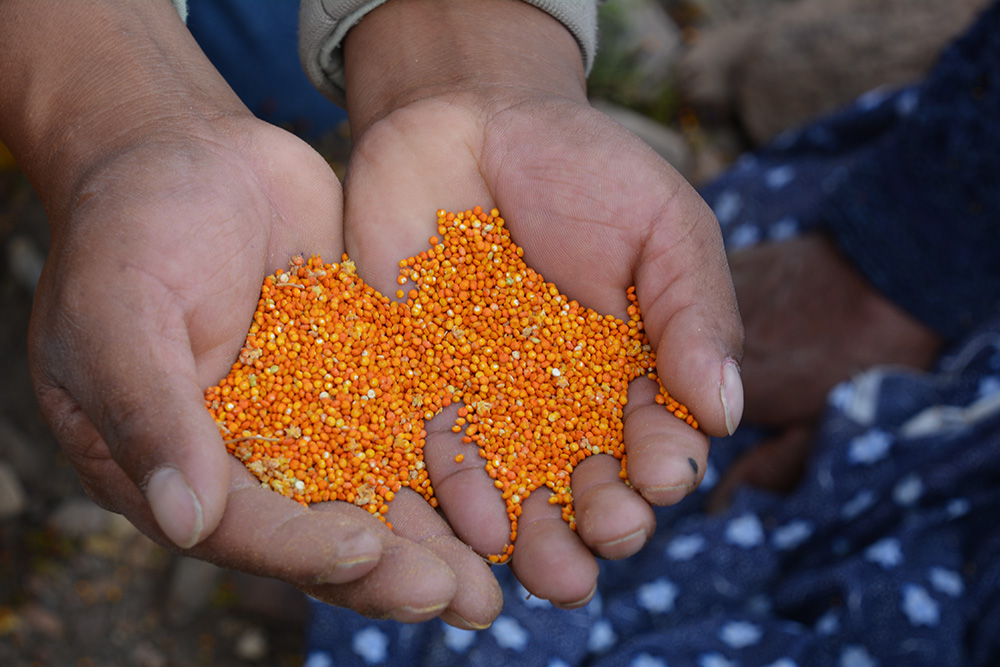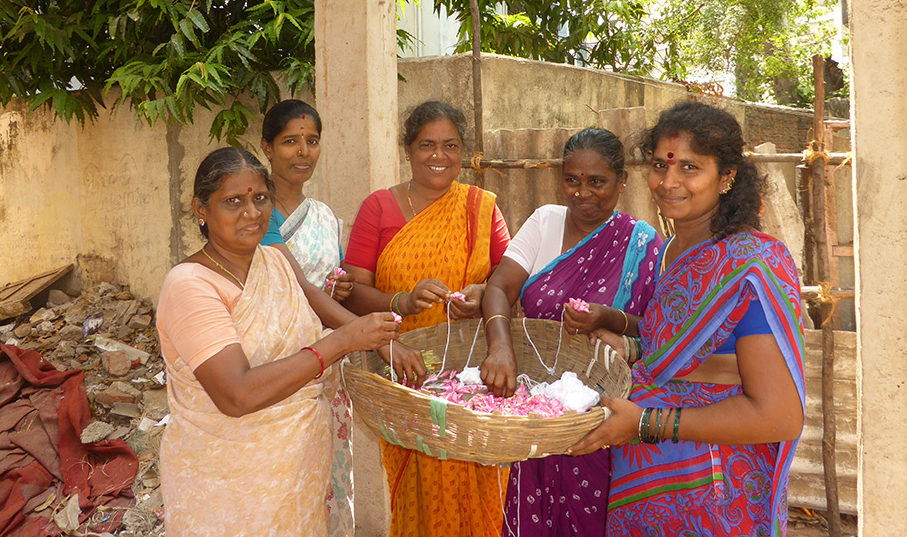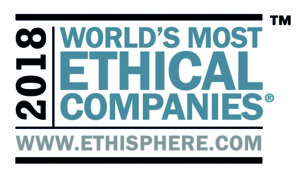
Could climate change threaten the future of global capitalism? New economic models and a renewed focus on responsible leadership are providing the basis for a sustainable future.
There is a widespread feeling that capitalism is at a tipping point. “As it is organised at present, global capitalism can only function by using up future resources, mostly in an irreversible way. We need new business models which respect planetary boundaries,” says professor Laszlo Zsolnai head of CEMS business ethics faculty group and director of the business ethics centre, Corvinus University of Budapest. In their new book, Progressive Business Models, Zsolnai and Eleanor O’Higgins point out that responsible leadership is all about creating positive social and environmental change. “The impact of business is huge on the ecology of planet Earth, and also big on local and global society. Financial or other economic considerations cannot over-ride the duty of business leaders toward human and natural stakeholders.” Energy generation and food production are the two biggest contributors to the rise in greenhouse gases.
Increasingly regarded as unsuited to today’s digital economy, free market liberalism is wasteful of resources and is undermining efforts to save the planet. Business models such as the circular economy and stakeholder capitalism resonate with the Millennial generation because they commit to social responsibility and reducing wasteful excess. Under the circular economy, products designed to be recycled and upgraded are leased to consumers rather than bought outright. Stakeholder capitalism would increase the public ownership of capital and subject companies to enhanced regulation.
With major world economies committed to cutting 50 billion tonnes of greenhouse gases each year in accordance with the 2016 Paris Protocol, businesses annually report on progress towards meeting the United Nations’ sustainable development goals, a set of targets which will drive business policy up to 2030.
To guarantee their future, enlightened businesses need to adopt a values-led approach that emphasises openness, and inclusivity. Responsible leadership is not solely the result of decisions made at the top of organisations, but must be a shared role in which all members of the team play their part. Devolved management means giving managers and staff the space to be creative and innovative. Small positive actions contribute to tackling major issued such as climate change.
The most profitable companies put long term sustainability ahead of short term profits. Published by the Ethisphere Institute, the Ethisphere List, an annual ranking of the world’s most ethical companies which includes L’Oreal, Mastercard and domestic appliance manufacturer Whirlpool demonstrates the linkage between responsible leadership and profit. Put simply, ethical companies do better than non-ethical companies. “Business leaders need a moral compass. They are expected to show the way. The bottom line doesn’t mean anything if your reputation is damaged and you are driven out of business,” says Andrew Leigh co-founder and director of leadership development and change management consultancy Maynard Leigh.
Responsible leadership has attracted the attention of academics keen to define exactly what it means and how it operates. Christof Miska and Günter Stahl of the WU Vienna University of Economics and Business in their research examine among other things how responsible leadership differs across societies. While the European market is heavily regulated through environmental and workforce regulation, other countries are less structured. Responsible leadership though implies going way beyond the minimum obligations under compliance. The requirement goes hand in hand with the high level of transparency through the spread of social media. “These days, as soon as some company violates human rights, there is a big chance that at some point the whole world might learn about it,” says assistant professor Miska.
Miska and Stahl’s work shows that a values-based managerial foundation consistent with openness, inclusiveness and sustainability is the best way of tackling major global challenges such as climate change, inequalities and sustainable development.
L’Oreal embraces social responsibility through an initiative which runs to 2020 called “Sharing Beauty with All”, with ambitious environmental and social goals to improve the company’s impact along the value chain. “One of the biggest challenges is fighting climate change, and we are committed to be carbon neutral in our factories and distribution centres by 2020. We need to work with all stakeholders, from the very beginning of the value chain to the consumption of our products. The sourcing of our materials is the key to achieving these goals,” says Inigo Larraya, director of corporate social responsibility and sustainability at L’Oreal, Spain.

In Bolivia, for example, L’Oreal sources quinoa husks, a waste-product from agriculture, which has amazing cosmetic properties. The company works with a local NGO to promote sustainable farming, educating the local communities to be able to harvest even in the driest years. These kind of projects help mitigate the effect of climate change while contributing to the development of local communities.
Social inclusion is another strategic pillar, tackled by another initiative, “Beauty for a Better Life” which provides opportunities for low income and socially excluded groups to become in-store beauty advisors. “In Spain, five hundred people will complete our training programme and so far we have an 80 per cent employment rate,” says Larraya.
Individuals can contribute in a small way to the health of the planet and to local communities through their career choices and commitment to social change. Established in 2013, New Generation Consulting arranges volunteering activities for CEMS business students who can use their local knowledge and specialist skills to benefit social enterprises working in developing countries and across Europe and North America. “We’re giving students the chance to work with social enterprises and NGOs to help them develop sustainable solutions. It’s an opportunity to give back to the global community,” says CEMS alumnus, Seva Granin, who is now leading efforts at NGC.
NGC runs eighteen projects each year for which it recruits seventy-two candidates from CEMS schools. Past projects include the social venture La Plataforma, a mobile money transfer app which helps Latin Americans working overseas send money home; and Dutch ecology enterprise Groasis which is developing anti-desertification and reforestation technology. As a result of working on projects like these, alumni are going on to build careers in the third sector or boost social responsibility in their chosen profession.

Company culture can be a big driver of change. Many start-up companies attract talent by promising them the opportunity of giving back to the community. CEMS alumnus, Octave Hirwa graduated from Copenhagen Business School and completed his term abroad at Nova School of Business and Economics and now works as a market researcher for Danish technology software company Omnicar.
Supporting customer relationship and after sales services for a network of car dealerships expanding across Europe, Hirwa helps run summer camps for academically challenged teenagers as part of a Foundation launched by the Danish prime minister.
The company’s involvement in reducing carbon emissions and its sponsorship of social projects contributes to a feelgood factor for staff that is more effective than financial reward. Says Hirwa, “From a business perspective, responsible leadership is driving the company to achieve the best results, not just in terms of profit but making sure the business is sustainable in the long run and for society in general.”
But an even bigger problem looms for business leaders – uncertainty! Global economies are entering a period of disruptive and unstable change as mass migration, rising unemployment, sluggish growth and zero interest rates fuel the rise of populist politics that saw Donald Trump elected president of the USA, the United Kingdom voting for Brexit and growing unrest and economic turbulence within parts of the EU.
In this context, responsible leadership is even more crucial. Today, many economists are talking about VUCA – short for volatility, uncertainty, complexity and ambiguity. The concept was coined by the US War College to describe the shifting sands of geo-politics. So far VUCA has hit sectors as diverse as media and advertising to high street stores, telecommunications and retail banking.
So how should responsible business leaders act? And how should they address the challenges arising from volatility and uncertainty?
Rapid technological change and digital transformation have thrown up new challenges to business ethics that were never anticipated. Think artificial intelligence, robotics, and the manipulation of big data. “Any business today is in completely uncharted waters. Business leaders have to be more listening and more agile,” says Jeremy Ghez professor of economics and international affairs at HEC.
Chris Sanderson co-founder and CEO of The Future Laboratory a strategic foresight consultancy believes that we are seeing the balance of power shifting towards the consumer. “What we’ve learned from recent corporate scandals – whether it’s manipulating diesel emissions data by Volkswagen or pensions mis-selling – creates a climate in which customers feel they’ve been lied to or misled. When we speak to consumers, especially younger consumers, they are saying, ‘Yes. We expect companies to be responsible and honest,’” says Sanderson.
South Asian online booking platform Hotel Quickly is a good example of a company that prioritises ethical leadership and consumer satisfaction. Co-founded by Tomas Laboutka, graduate from the University of Economics Prague and CEMS’ Alumni of the Year 2017, Hotel Quickly’s flat management structure empowers individuals to be “the best version of themselves they can be.” Says board advisor Laboutka, “we work hard at supporting our people’s careers whether its relationships, health, friends or the community. Our customers benefit by getting a service that team members believe is the very best.”
Responsible leadership can make an important statement about freedom of expression and basic human rights. When Pierre Gaubert graduated with a CEMS Masters in International Management from London School of Economics in 2013.
Gaubert (30) with twin brother Adrien founded myGwork a recruitment hub for the LGBT community in 2015. The site now has around 100,000 users, myGwork has global aspirations with around half its members based in London, a further 20 per cent from across the UK, 20 per cent in the US and the remaining ten per cent in Europe.

According to research by LGBT lobbying groups like Stonewall and Out Now, over fifty per cent of LGBT people claim to have suffered bullying in the workplace. MyGwork is supported by corporate partners including Dow Chemicals, Ernst and Young and J.P. Morgan who use the site to advertise vacancies. “LGBT people need a level playing field. This is not about targets for hiring people. Firms are using our platform to attract the best talent,” says Gaubert.
MyGwork may be a far cry from tackling climate change yet the evidence shows that small steps towards openness, and inclusivity help push the debate forward, creating a climate of co-operation where big problems can be tackled and clear minds can come up with solutions that can transform capitalism.
Case Study / BNPP

Microfinance is a key part of BNP Paribas’ commitment to developing a and tackling financial exclusion in some of the poorer communities in which the bank operates.
Following the example of Bangladeshi economist Muhammmad Yunus’ Grameen Bank, BNP Paribas seed funds microfinance institutions so to give them access to the money they are going to lend to the ones excluded from access to conventional sources of capital. Says Claudia Belli Jeanteur, BNP Paribas Global Head of microfinance and social Entreprisses, “We also propose to our talents “Leaders for Tomorrow” programs where they will work pro bono for MFIs, this creates responsible leadership as fully engaging staff, creating positive change for tomorrow’s world.”
Operating worldwide, BNP Paribas’s microfinance team supports social enterprises and MFIs across 17 countries including India, China, Vietnam, Indonesia, Tunisia, Morocco, Senegal, Ivory Coast, South Africa and Brazil. In Europe the bank supports social enterprises in cities in France, Italy, Belgium, Luxemburg, Poland and the UK. BNP Paribas invests and lends around 250 million euros in microfinance initiatives: the total portfolio of loans and investments to 1100 social entreprises, including microfinance, is now more than 1 billion euros. “We promote social and financial inclusion and access to health, housing, work, … through the financing and investment into these entreprises or impact funds;our loan portfolio is growing at a rate of 10-20 per cent per annum,” says Ms Belli.
Funds are channelled through carefully selected partners such as the MFIs and NGOs or other kind of SMEs specialising in specific types of issues like poor housing, sanitation, disability, sustainable sources of energy, access to healthcare… having each time in common to tackle the social or environmental problem through a sustainable business model.
After careful risk assessment, BNP Paribas policy is to invest in social enterprises that make a real difference to communities and to people’s lives. For example, in Tunisia, the company assists community based projects as Acacias for All who plants Acacias to stop desertification in rural areas providing a job to local women. While in France BNP Paribas’s investment supports NGOs or SMEs like Siel Bleu, a company providing gym lessons for elderly or disabled care home residents or a computer recycling business, ATF Gaia, which employs and trains disabled technicians. Microfinance comes under the remit of corporate social responsibility (CSR) whose activities include ethical investment, staff wellbeing, community engagement and safeguarding the environment. Closely aligned to the UN Sustainable Development Goals, key performance indicators are reported on annually to stakeholders.
Under the strategic leadership of Global Head of CSR Laurence Pessez, the bank’s future leaders not only champion ethical decision-making but ensure all staff are encouraged to make a positive impact for fellow workers and clients. This emphasis on social responsibility has helped establish BNP Paribas as an employer of choice. Says Ms Belli, “CSR is embedded in all our business units and managers have business goals and they have personal goals. It is this depth that makes our CSR policy strong.”
